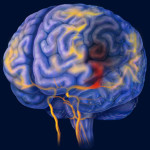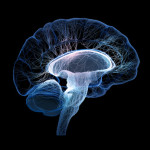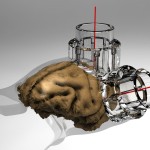Segmentation of the Thalamus for the Treatment of Neuropsychiatric Disorders

The thalamus is a centrally-located brain structure responsible for controlling motor activity, sleep and the awake state of consciousness. However, its most important function is relaying information from the sensory receptors to the relevant cortical areas. Damage to this part of the brain results in incorrect processing of sensory information. Thalamic abnormalities have been found in…
The Influence of Genetics on Corpus Callosum Microstructure

The corpus callosum connects the left and right sides of the brain, allowing for communication between the two cerebral hemispheres. Abnormalities in the microstructure of this band of nerve fibers compromise the efficiency of motor, sensory and cognitive information transfer within the brain. Several studies have highlighted that genetic factors may play an important role in…
White Matter Lesions in Stroke Patients

Aging is associated with the appearance of increased white spots visualized on brain MRI scans. The presence of these anomalies, called white matter hyperintensities, characterizes elderly subjects as well as ischemic stroke patients, regardless of their age. White matter hyperintensities are thought to be caused by small vessel infarcts (restriction in blood flow) in the…
Transporting Therapeutic Drugs across the Blood-Brain Barrier

The blood-brain barrier is an anatomical interface developed to separate and protect the brain from the circulatory system. The brain’s network of blood vessels allows the transport of neurotransmitters, glucose, essential nutrients and hormones across the brain, while it blocks other substances from penetrating. This barrier is so efficient at protecting the brain against the passage of unfamiliar…
Early-Life Stress and Pituitary Gland Development

Whenever a stress response is triggered, the hypothalamus at the base of the brain is activated and stimulates the pituitary gland, which in turn helps regulate the activity of other hormone-secreting glands. As the mediator of stress management, the pituitary gland may be highly affected by stress dysregulation. A recent study carried out at the University…
Custom-fit Cranial Implants for Neurophysiological Assessment

Chronically implantable devices take on an important role in the study of the functioning of the nervous system and have experienced a compelling evolution over the last decade. Cranial implants are used to electrically stimulate or record neural activity in the brains of awake behaving animal models. The implantation of these devices often leads to complications…
Distinguishing between Cell Populations in Glioblastoma Multiforme

Glioblastoma multiforme is the most common type of brain tumor and the most malignant and fatal. Some of the features that make this disease extremely difficult to treat are its aggressive invasiveness, high proliferation rate and resistance to standard treatments. In fact, this particular tumor consists of many different types of cells and while some…
Brain Changes Associated with Chronic, Heavy Cannabis Use

Several recent studies indicate that heavy cannabis usage appears to be associated with significant structural changes of key brain regions over time. With recent legal changes in social and medical consumption of cannabis in several countries, questions over the drug’s effects on the morphology of brain structures continue to arise. The psychoactive ingredient in cannabis is…
Predicting Outcomes in Acute Ischemic Stroke

Stroke is the second leading cause of death worldwide according to the World Health Organization. A stroke involves the loss of brain function due to a disturbance in blood supply to the brain. It can be caused by either a blood clot that blocks or plugs a blood vessel in the brain (ischemic stroke) or a blood vessel that breaks and bleeds…
Hippocampal Volume Measurement and Memory Loss

Memory is a highly constructive cognitive process that takes place in our everyday lives and consists of encoding, storing and retrieving information. Our memory is not located in one particular place in the brain, but is instead a brain-wide process during which several different areas of the brain act in conjunction with one another. One of the areas that plays…
 AnalyzeDirect
AnalyzeDirect